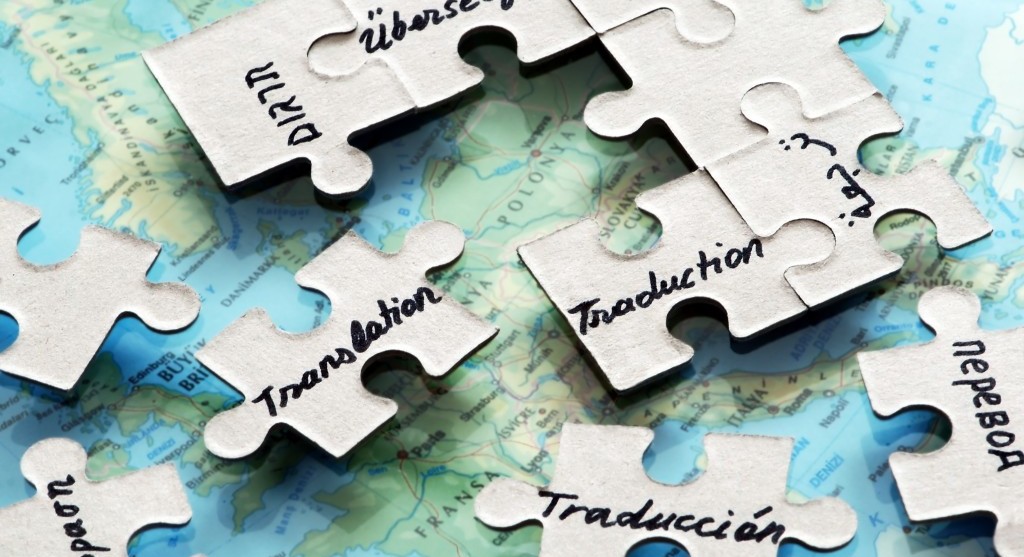In the past, marketing was understood to mean placing adverts newspapers, magazines, radio/tv, on billboards or flyers. In the past few decades things have changed radically, and the company that wishes to compete on today’s market must be digitally literate. If they want to continue or expand into the international market, that means using all of the new technologies and social media to their advantage.
Tag: translation company
How does a translation company work?
The translation business is growing daily due to the importance of having an internet presence, and the need to communicate your message to as wide an audience as possible to remain competitive. There are many different types of translation agencies and companies around, ranging from lone “friends of friends” who can help out at a pinch, to large, international companies with professional translators available at the click of a mouse.
HERSEN Mechanical Engineering for Stone – Marble Machines and More!
BigTranslation recently teamed up with Hersen to help them on their quest to internationalise their business. So, how did we do this? Well, considering the markets they want to expand into, this involved translating their website from Spanish into English. We only work with native translators specialised in the field that the translation is for.
Read more “HERSEN Mechanical Engineering for Stone – Marble Machines and More!”
SEO strategies that you must learn about
What is SEO?
SEO is the acronym for “Search Engine Optimisation”. It is an internet marketing strategy which uses search engines and affects the process through which it increases a web page’s visibility on the results of the search engine. Meaning that a website or a web page will appear higher on the search results of a search engine (like Google or Yahoo).
Translating Content Marketing
What is Content Marketing?
We can understand what translation is, and everybody knows what is meant by marketing. But what about content marketing? What is the difference between this and plain marketing? According to the Content Marketing Institute “Content marketing is a marketing technique of creating and distributing valuable, relevant and consistent content to attract and acquire a clearly defined audience – with the objective of driving profitable customer action.”
How a poor translation can mean bad business for restaurant owners
Look up “translation fails” on the internet, and you’ll immediately see why this is always good for a laugh. There are so many hilarious, unintentional bloopers out there that it’s a bit difficult to digest them all, and you certainly wouldn’t want to eat in a restaurant that serves these mistakes!
Read more “How a poor translation can mean bad business for restaurant owners”
When do I need a translation?
The answer to this question is more complicated than you might think. The need for translations come up all the time in business, especially those operating internationally, but the reasons to need a translation can be quite varied. Read more “When do I need a translation?”
Which languages do you think are the most challenging?
As English speakers we are really spoilt, as pretty much the whole world is trying to learn English, and where large parts of the world have not yet fully succeeded in the endeavour, they are well on the way. So this takes the pressure off as native English speakers, which might be seen as a good thing. Unfortunately however, the all-too-common result on our part is the tendency toward extreme laziness when it comes to language learning! After all, why bother when the rest of the whole is beating a path to our door and doing all the work to make themselves understood.
Read more “Which languages do you think are the most challenging?”
Can I get my corporate blog translated?
These days a corporate blog is a widely-used means of generating quality content of interest to our target audience. Blogs contain keywords of popular Google searches and can be about pretty much any topic under the sun. The trick is that they be an interesting read in their own right, thereby attracting the type of potential customers that we want (in the case of a business), but also that they appear high in search-engine rankings by virtue of the use of keywords.
Tourism Translations
All of us have seen those lists of “top 10 translation fails” on Buzzfeed or similar pages, with their ridiculous and hilarious mis-translations from one language to another, but no-one actually wants their business to be the butt of these jokes, or appear on the lists. While it’s very amusing to see “ducha” translated as a “douche” (who wants to find one of those in their room, right?) or “exit” as “’exito” in Spanish [success, not really what people are expecting to find at the end of the hotel corridor], and “stir-fried wikipedia” sounds like an interesting item to find on the menu, if your business is in the tourism industry, you want to limit these translation mistakes to the internet where they belong.










